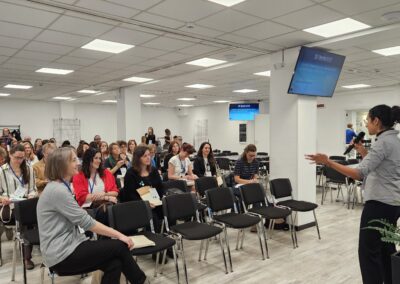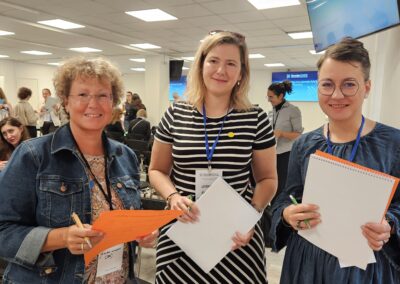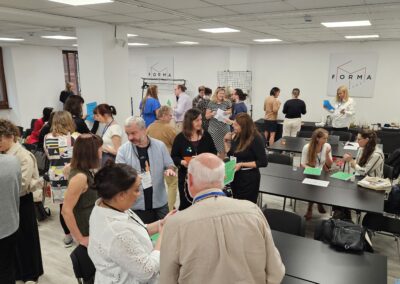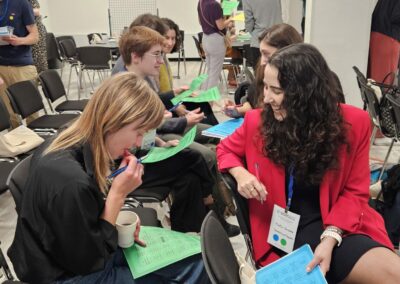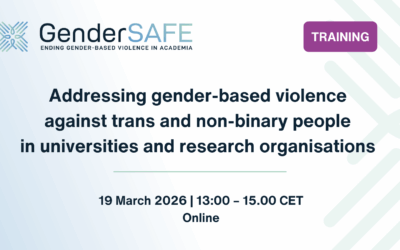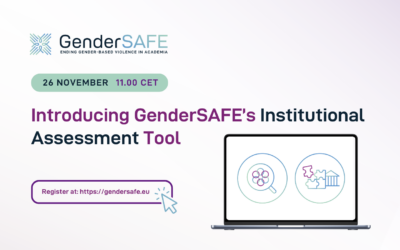The GenderSAFE Community of Practice (CoP) was officially launched on 15-16 October in Rome, gathering almost half of its participants for a first in-person meeting.
As GenderSAFE is developing an operationalisation of the EU baseline code of conduct adopted by the Commission’s ERA Forum Subgroup on Inclusive Gender Equality, the CoP will explore over the next two years how these baseline principles can be contextualised and operationalised, how challenges can be addressed and problems overcome, and how different perspectives (including from students) can be integrated in policy design and implementation.
One CoP, five circles
With five thematic discussion groups (“circles”), the CoP offers participants the opportunity to share knowledge related to developing, improving, and implementing gender-based violence policies. It is also a place for participants to learn from others’ experiences, and discuss how to overcome specific barriers across a variety of organisational settings, supported by experts in the field.
During this first meeting, participants were introduced to the three of the thematic circles:
- Legal aspects of gender-based violence
- Intersectional power relations
- Perspectives from Central and Eastern Europe
Two more circles are soon to be launched:
- National authorities across Europe, with representatives involved in framing institutional gender-based violence policies. In many countries, we see how the framework pushes for institutional change. This circle will be engaging with GenderACTION+’s community of practice.
- Perspectives from students and student associations involved in gender-based violence policies, advocacy, and policy monitoring and evaluation. This circle aims to ensure that the needs and aspirations of students related to addressing gender-based violence and from diverse cultural contexts will be incorporated into the design and development of policies. Insights from student participants will also feed into the discussion within other circles.
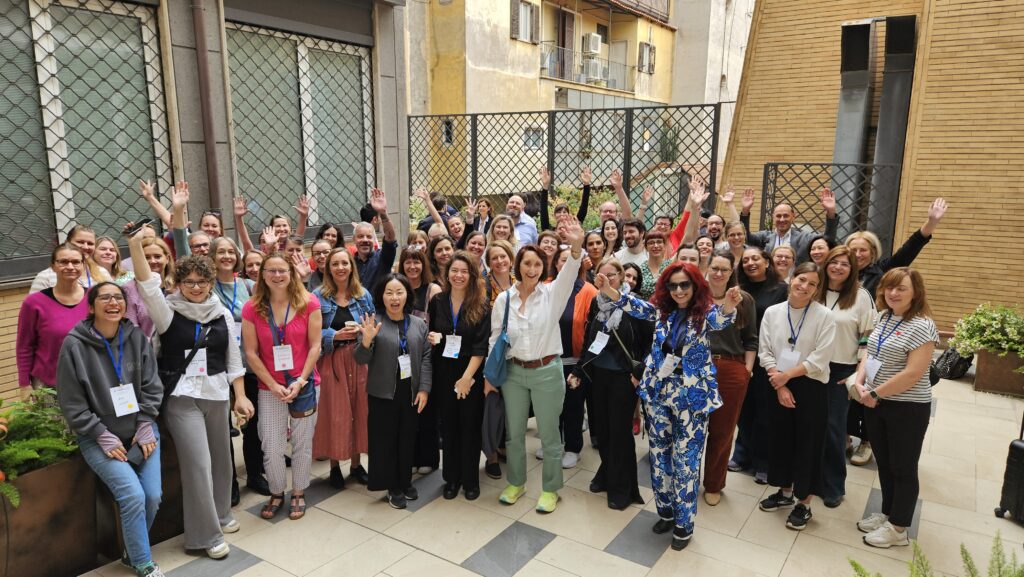
Operationalising the policy framework
Participants were then introduced to the model policy framework which will provide the base for upcoming discussions within the general CoP and circles. After critical analysis from various perspectives, identification of weaknesses, gaps, opportunities, and strengths, and input from their own experience, CoP members will then be invited to test the model policy framework within their institution.
The development of this model policy framework was supported by three key documents: the EU baseline for a zero-tolerance code of conduct, two recent GenderSAFE deliverables: a Needs Assessment Report Addressing Intersectionality, Precarity and Mobility and a Report on Zero-tolerance Approaches to Gender-Based violence in Higher Education and Research.
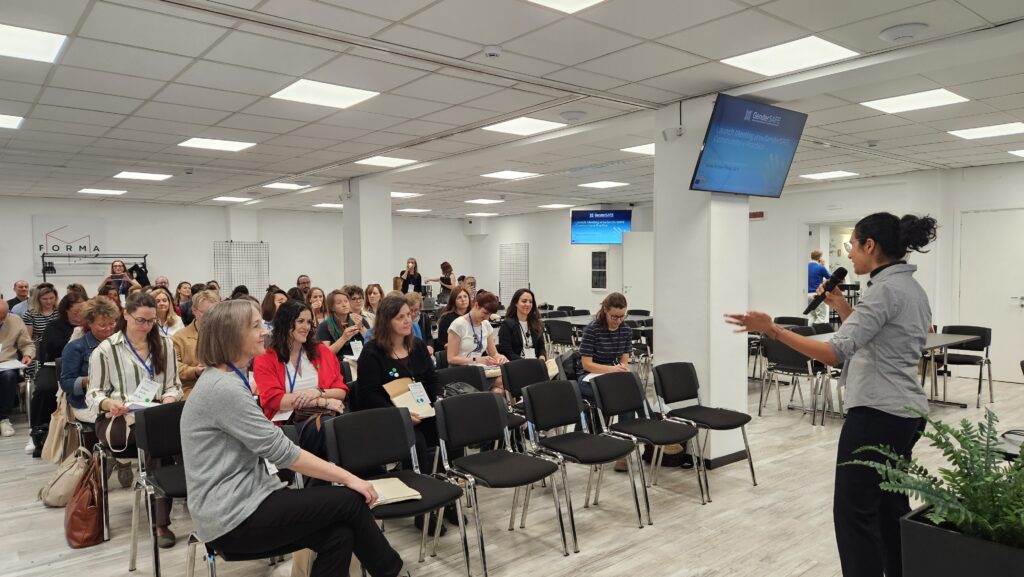
Exploring resistances to institutional change
“When you expose a problem you pose a problem. It might then be assumed that the problem would go away if you would just stop talking about or if you went away.” Sara Ahmed, Living a Feminist Life
Addressing gender-based violence requires institutional change. First, it challenges the underlying value systems and organisational principles, including academic hierarchies and power differentials. Second, it aims to improve institutional policies, procedures, and practices. Third, it addresses interpersonal relationships and personal conduct. In this context, institutional resistances towards gender equality are a common challenge to address at all levels.
Among the many highlights of these two days, participants particularly appreciated a training session on how to deal with institutional resistances, understood as the attitudes, behaviours, and institutional practices that oppose or hinder efforts to achieve equal rights, responsibilities, and opportunities for all genders.
Case studies of resistances, such as to introducing precautionary measures, to the allocation of specific resources, or to the need to address gender-based violence, provided a base to collectively design strategies to avoid or mitigate the impact of such situations, whether before, during, or after the event.
Resistances can be overcome! Strategies include anticipating, rehearsing, preparing, but also building alliances, and communicating. Most of all, resistances are also a sign that the work is having an effect, an impact, and is creating change.
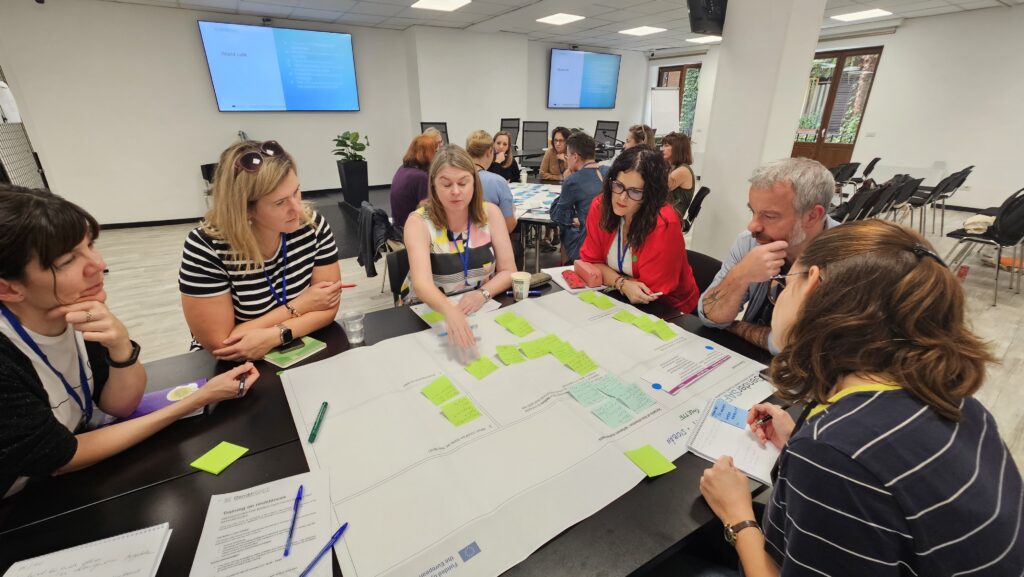
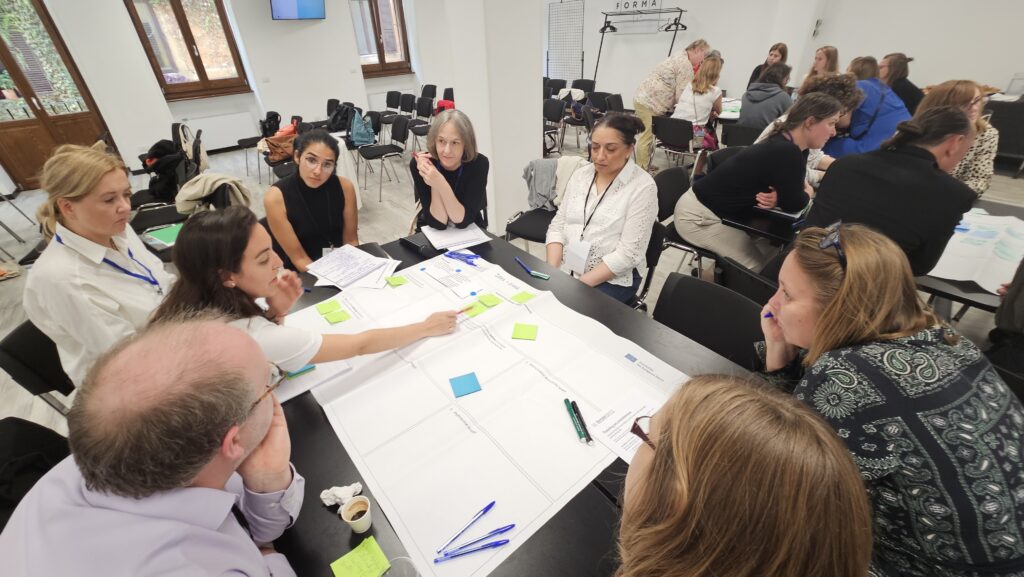
Kicking off the circle discussions
As the last part of the programme, CoP members engaged in smaller groups to start reflecting on topics such as overall patterns of power abuse in academia, as well as specific issues pertaining to thematic areas.
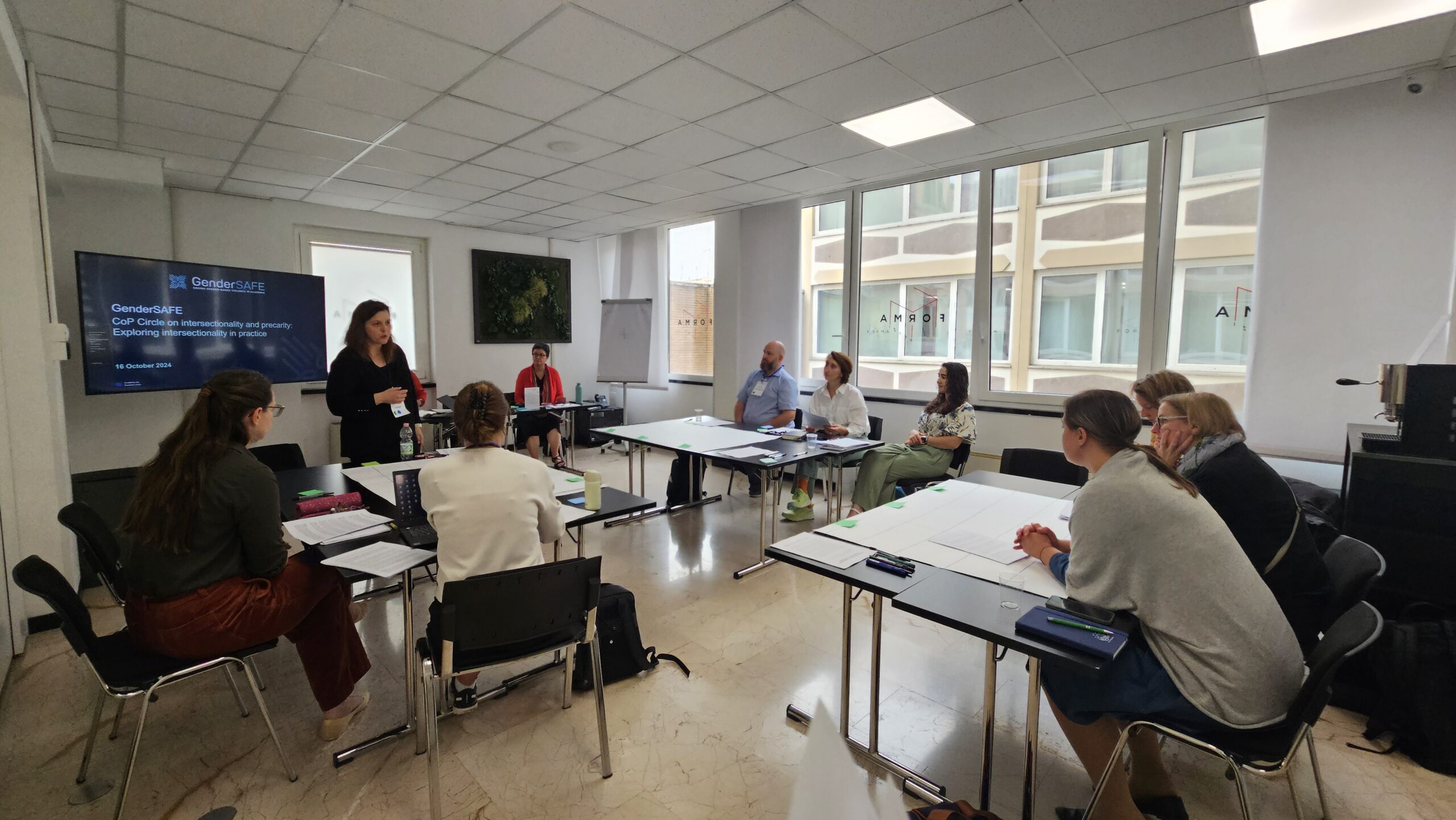
What participants say…
Leveraging comparisons with good practices from other institutions can help lift resistances. Partnering with institutions across different countries and cultural contexts can also be a powerful tool to push for change…
I appreciated finding myself in a community where people know what you’re talking about and are interested in co-creating solutions to resistances. A space for self-care.

